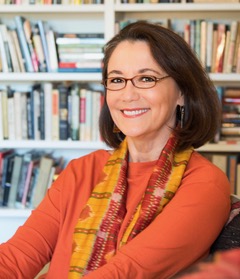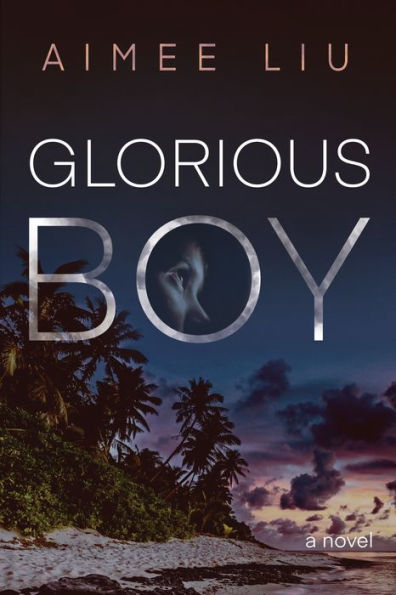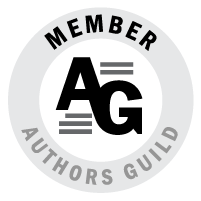My Father's Secrets, Decoded at Last
My father was his family’s gatekeeper. Born in Shanghai in 1912, the eldest of his biracial siblings, he was raised to straddle East and West. He kept the peace between his Chinese father and American mother. And as the one member of his family who corresponded with those he’d left behind after moving to America in the 1930s, he alone held the secrets that could wound, shame, and inflame the relatives who’d immigrated with him.
Those secrets lay buried in the mass of junk that Dad hoarded throughout his life. After he died in 2007, I took the lead in curating this tangled mess. Both as a writer and as his daughter, I was fascinated by the mystery surrounding my remote, taciturn father. I hoped that in all his stuff, I’d discover the reasons why he claimed to remember so little about his past in China. Fifteen years later, I’m finally beginning to decode the evidence he was shielding.

Half cast
Few of my father’s possessions originally belonged to him, but almost all reflected the division that had cleaved his identity for nearly a century. Half of his acquisitions smacked of his father’s Chinese lineage, and the other half were as British as his American mother’s English forebears. As I piled statuettes of Kuan-Yin and delicate calligraphy scrolls alongside Fortnum and Mason butter knives and Smithson of Bond Street leather goods, I was struck by both the contrast and the impossible longing these objects symbolized.
My father could never quite secure his place in the world. He’d been unable to satisfy his British schoolmasters and classmates in Shanghai that he was “one of them.” Nor could he ever measure up to his Chinese ancestors’ standards as “eldest son.”
After he moved with his mother and siblings to Los Angeles in 1932, Dad tried to cast himself as the best of both worlds by playing Hollywood exotics with English accents — the Hawaiian groom in Waikiki Wedding with Bing Crosby, for example, and Bela Lugosi’s watchful houseboy in Shadow of Chinatown. His sister Lotus, too, appealed to producers, becoming known about town as a “Eurasian starlet,” while younger brother Herb became the cut-up of Beverly Hills High.
But as World War II bore down, the warm reception the family had received from 1930s Los Angeles began dramatically to cool. The allure of the “exotic” was replaced by suspicion of the “alien,” and my father’s divided loyalties again became problematic. His father, a government official and professor, had remained in China, and Dad, the only one of his siblings able to read and write in Chinese, was the designated point man for all correspondence with him.
Buried in his junk I discovered a cache of those letters with calligraphy ranging from refined to coarse brushwork on thin rice paper. I asked my mother if she and Dad ever discussed their contents. “I’m not sure his Chinese was ever good enough to read them,” she replied. “I never even saw most of these.”

Filial secrecy
While his siblings became U.S. citizens as soon as they could, my father had vacillated. In the fall of 1941, as the Japanese army was annihilating eastern China, he flew to the western capital, Chunking, to report for the Red Cross on efforts to train Chinese national aid organizations. Before returning to America in 1942, he visited his father, who had fled the destruction of his home in Wuhan and was serving as a Nationalist commissioner in Chunking. By this time, my grandmother and her other children had been living in America for nearly a decade.
Among the archives from that trip, I found two small black and white photographs. One is a portrait of my grandfather looking old and haggard with a handsome picture of my grandmother hanging prominently behind him. The second is a group shot, taken in a Chinese courtyard, in which my grandfather is flanked by a middle-aged woman and a young couple with a little girl. No one in this photograph is identified, though I suspect that my father himself took the picture.
I also discovered a confounding letter, sent near the end of the war:


Enclosed with this greeting was a passport-sized photograph of a solemn young man with a delicate mouth and jug ears like my uncle Herb’s. Remond Lou wore a striped tie for the camera, and a herringbone suit jacket. His thick black hair was parted on the left and combed neatly to one side. He had a shallow widow’s peak like my own. He looked like he might be related to us.
But my father had never breathed a word about meeting this mystery “brother” in his “father’s bedroom,” though Remond clearly was referring to Dad’s visit to Chunking in 1942. The tone of the message is fond and familiar, if strangely coded. What exactly did Remond mean by “my parent”? And why spell his last name “Lou” instead of “Liu” if he was actual family?
Could my Chinese grandfather have taken another wife while separated from my grandmother? If he had, he’d hardly be the first. That could explain the middle-aged woman in the group photograph. Perhaps the young family, as well as Remond, were related to her. Or perhaps they were all part of a second Chinese family that my grandfather had started earlier. Perhaps they, not the war, were the real reason my grandmother had left China for good in 1934.
I had no solid evidence of any of this.

Death sentence
What I did have were letters that my grandfather sent to his American wife in 1948 suggesting a family reunion in the United States. This proposal was a thinly veiled request for sponsorship that would enable my grandfather to secure a visa at a time when Mao Zedong was gaining ground and China’s borders were closing. But he could no longer write intelligibly in English, so he’d urged Dad to transmit his pleas.
My grandmother never answered her husband. Her rationale in the irate note she sent my father was, “He is better off in China among his own people and his friends.” Then she added, “Just imagine how embarrassing it would be.”
She ordered Dad to burn the letters and all other evidence that they had ever received them. Those could well be the instructions of a woman scorned. On the other hand, alongside those commands, she wrote that she’d never divorced my grandfather because she “didn’t want to hurt his feelings.” So I suspect that prejudice rather than jealousy lay behind her refusal.
Somehow, my grandmother’s forty years of marriage to my Chinese grandfather, which had begun when he was a student at U.C. Berkeley and ended up producing four children, made her less, rather than more, sympathetic to China. She’d never learned to speak or read Chinese, never wore anything but western clothes, and never developed the slightest interest in the Asian history and politics that were her husband’s life work.
In my humble opinion, my grandfather should be forgiven if he had, in fact, taken a Chinese wife when my grandmother left him.
“We had no idea what was about to happen,” my father had told me whenever we discussed this episode. “Papa was elderly and not in good health. She couldn’t imagine what he would do here.”
One thing he might have done was survive. That refusal to sponsor him in 1948 was effectively a death sentence. One year later the Communists took over China. The Bamboo Curtain pulled shut. And we learned nothing more about my grandfather’s fate for 45 years.
In 1994 I discovered through records in Taipei that he had died of natural causes in his hometown of Wuchang in 1953. That coincidentally was the same year I was born — and the same year my father finally became an American citizen.
Dad insisted that we had no family left in China after his father died.

Loyalty oaths
My father understood that, as eldest son, it was his job to navigate both his parents’ worlds, to practice shuttle diplomacy without upsetting anyone or making things more confusing than they already were. Yet he never destroyed the evidence incriminating either parent. On the contrary, he kept virtually every letter, telegraph, bill, or photograph he’d ever received.
For someone who claimed to remember as little of his personal life as my father did, the sheer volume of memorabilia at first made no sense to me. Only as I began to go through it piece by piece, hiring a translator to help me read those letters from China, comparing pictures and timelines from one continent to another, and fitting the newly discovered details into the gaps of the family history I’d thought I knew, did I begin to understand the true reasons for my father’s behavior.
He was the only one of his siblings to retain his Chinese surname, Liu. The only one to see his father again after their parents separated. And the only one who ever learned how to read and write in Chinese. Despite his British accent, Dad felt a unique allegiance to his birthplace and to his father.
Meanwhile, his American mother never gave up her campaign for him to ally exclusively “with us.” When Dad was preparing his citizenship application, his mother wrote to him, “Dear, why don’t you drop the name of Liu… and spell the last name Lewis or Louis…China’s in the hands of the Communists, better drop the name. Your life is here now.”
Not a backward glance or thought that her half-Chinese son might feel any conflict or hesitation to erase the first 19 years of his life and camouflage his ancestry. Not one word about the husband she’d left “in the hands of the Communists.”
I never knew my father’s mother. Dad dutifully made the trip from our home in Connecticut to see her in California every couple of years when I was a kid, but he didn’t take my mother, brother, or me. Now that I’ve read her correspondence, I think he might have been afraid her prejudice would poison us.
Just recently, I’ve also discovered another reason why he may have minimized contact with his mother.
What did he know, and when did he know it?
That letter from my father’s “youngest brother” and the photograph of his father’s possible mystery family have haunted me ever since I unearthed them more than a decade ago. I couldn’t shake the suspicion that my grandfather had another wife, which meant that we might still have relatives or distant in-laws in China. So, finally, I engaged a My China Roots, a team in Beijing, to research my grandfather’s family records.
Last week they reported that my grandfather did indeed have another wife when he died in 1953. They even provided me with her name: Zhang Shuwei. What they couldn’t tell me is when she met or married my grandfather. Or if my father knew about her.
I didn’t recognize the name of my father’s stepmother. But this new information sent me back to the notebooks I’ve created over the years with translations of all the correspondence I recovered after Dad died. Many of these letters were written by strangers who, I presumed, were male friends of my grandfather. Not being a native speaker, I can’t tell the difference between male and female names in Chinese. Names like Zhang Shuwei, for instance.
But now when I spotted this name on a note to my father from 1944, I read it with a whole different interpretation. Ms. Zhang, my grandfather’s mystery wife, had written to Dad on the occasion of his father’s 70th birthday. “We will celebrate his birthday together.”
Furthermore, she referred to meeting Dad several years earlier. The tone of the letter, like that of Remond’s, is fond and friendly. “We are very happy to hear that you are all fine in America.” She exhorted Dad to write to his father, who “is always so happy reading your letters.”
She didn’t mention Remond, but I now have no doubt that Ms. Zhang is the “parent” responsible for introducing this surprise stepbrother to Dad in his father’s bedroom in 1942.
So, my father had met his stepmother. He spent time with her and his father together. And over the subsequent decades he never even hinted at her existence to his family in America. Especially not to his mother or siblings. Nor to his own wife or children.

Legacy
For 65 years this Chinese correspondence sat moldering in a box in my parents’ basement.
Not long before Dad’s death, my mother threatened to throw all his junk in a dumpster. For my mother, “junk” was an all-inclusive term for the clothing, objects, tools, artifacts, and papers that Dad had rat-packed throughout the house. By any definition, he was a hoarder.
But now I understand the method behind his infuriating habits. Trapped between loyalties, he kept the evidence of his connections and responsibilities to his father while hiding that very same evidence to avoid betraying his mother. Unable to let the secrets go, he buried them in “junk.”
And then, just days before he died, he begged me to find a box that he said contained a fortune. He couldn’t describe it or tell me where to look. But he repeated his plea with increasing urgency almost to his last breath.
My mother didn’t believe he knew what he was asking. She thought his mind had cracked.
I couldn’t be certain, either. But my father knew me. I’d written two novels in an attempt to resolve the family questions that he refused to answer. He knew I wouldn’t let my mother throw his secrets into the dumpster. He trusted that I would not give up until I found his hidden box.
Dad also knew that I would understand both why he’d concealed so much all these years and why he needed it to surface at last. He’d done his duty as the family gatekeeper. In the process, he’d made himself an enigma even to those closest to him. Perhaps especially to me, since I was the one who most yearned to understand him. Here was a final chance for redemption.
As complex, conflicted, and shame-filled as his life had been, that box of letters was part of his legacy. I believe that in the end, he wanted his whole truth to be known. Deep down, don’t we all?
This story was originally published @authoraimeeliu.medium.com HERE



